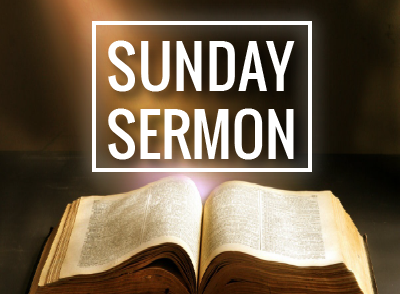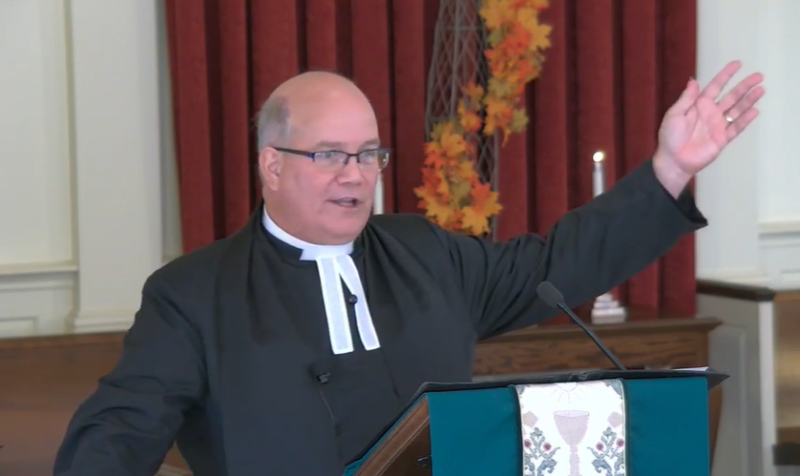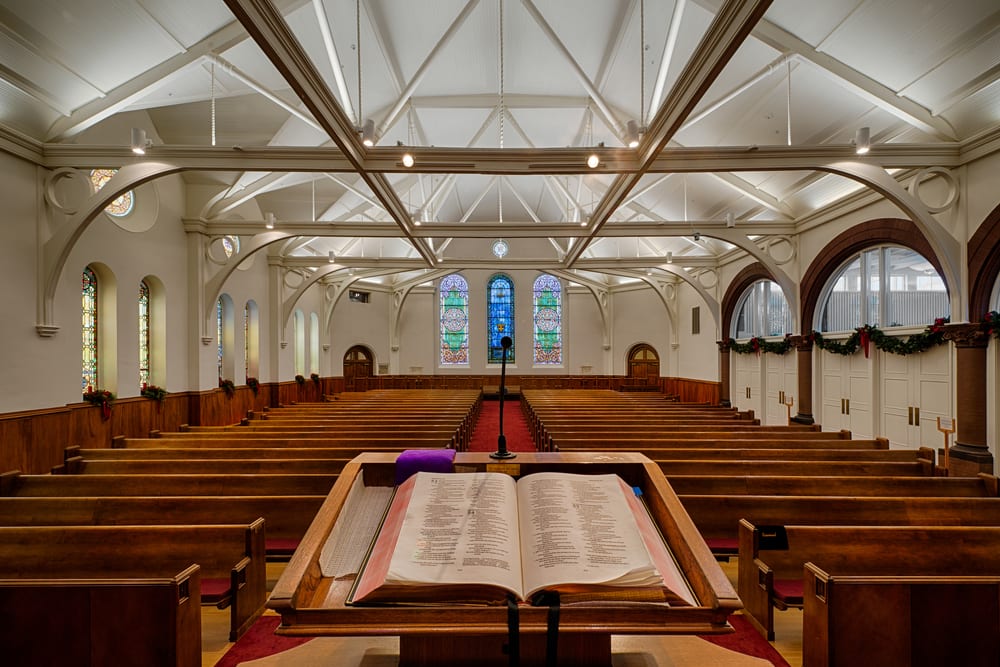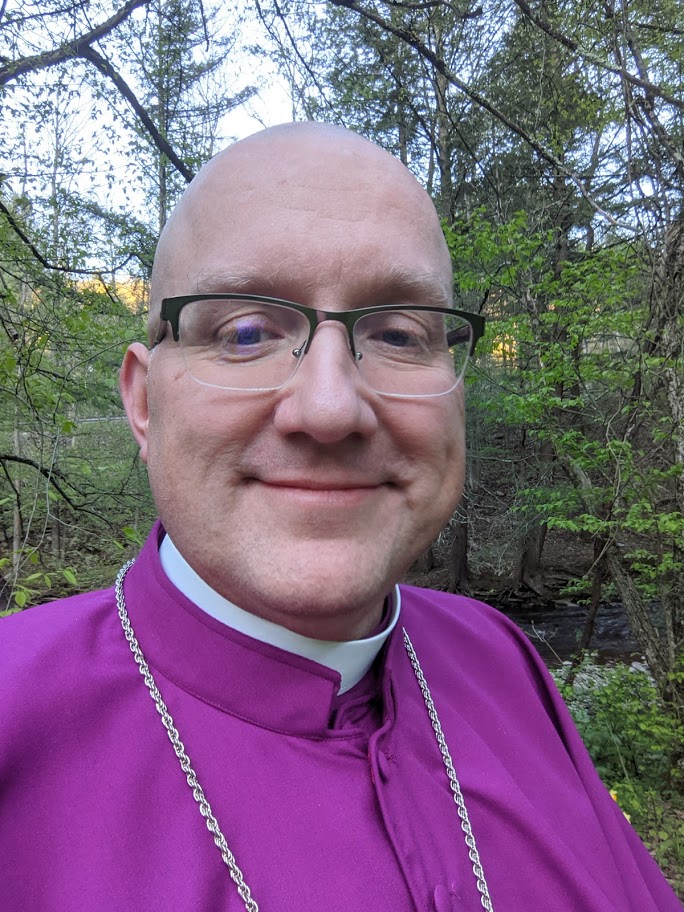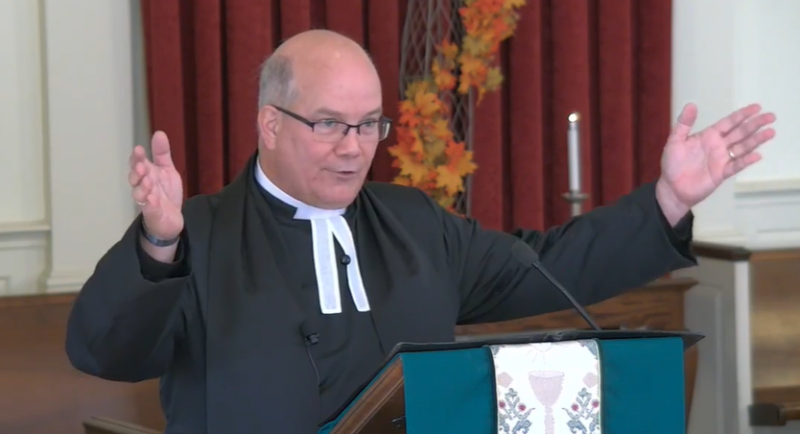Editor: Sermon preached on Sunday, July 18, 2022 at St. Nicholas United Methodist Church in Hull, Massachusetts. The Sermon is based on Colossians 1:15-28
I have to admit; I have a hard time with Paul. Sometimes he writes in beautiful prose, and sometimes he is a blowhard. Paul’s background is interesting. Paul is a Pharisee, a teacher of the law. Paul was the “great persecutor” of the people of the way. Tradition tells us that Paul was present when Stephen, the first recorded Christian martyr, was stoned to death. That same tradition says that Paul held the coats of the others while they did the deed. Paul’s hands were clean.
Most Christian Scriptures are accredited to Paul and most of what we know as Christian Doctrine comes from those very same writing. Many people can quote Paul backward and forwards, yet he remains one of the most controversial people in all Christian History.
Paul writes in the form of letters. Paul is writing to Churches that he has founded and is in some sort of trouble. The problem with Paul is that we often do not know the issues he is writing about. He does not leave many clues, yet we grasp a hold of his writings and apply them to whatever we think the situation might warrant.
Many Christians practice the art of the proof text. First, we find a situation, usually something to do with taking away the rights of others or excluding others from our congregation. Then, we back into it with Scripture and lift a passage to prove our point.
Let me give you an example. One of the favorite Christian lines is “judge not lest ye be judged” I am using the King James version here. We hear this often, especially when what we are saying is against what they happen to believe.
First, they usually cannot tell you where that particular verse is from in the Bible. It is from Matthew 7:1; I had to look it up. Next, it is usually not applied correctly. We all make judgments. We judge people. We judge their words. We judge their actions. You are lying if you say you do not. This verse is not admonishing us from judging; this verse is about the motive of that judgment. How do I know this? Because I do not just isolate that one verse, I take that verse in the context of the verses around it. I know what was going on at the time it was written. And I understand the mind of the people who not only wrote it but to who it was written. In other words, I have spent most of my adult life studying these words.
Now we come to the passage we heard this morning that Paul wrote to the Church in Colossae. Paul is writing this around AD 61 ish, and he is writing because the people there felt the need to enhance apostolic Christianity. Keep in mind, there were not a lot of books floating about this time, and folx did not have access to Wikipedia, so they were left to their own devices to help others explain things.
It came down to the nature of Jesus and his relation to God; that is why Paul writes the way he does concerning Jesus and describes him the way he does. The Colossians were teaching that Jesus was not God but rather one of several mediators. This is what we now call the gnostic heresy.
So, this leads us to the larger question of who is God/Jesus?
One of my other favorite tropes is “we need God back in America.” I was unaware that God had left. When I hear this, I usually ask a follow-up question: whose God do we want back?
One of my favorite authors is Brian McLaren. Brian is a theologian that has written dozens of books about the nature of the Church and the 21st century. In 2004 he wrote “Generous Orthodoxy,” which was a book mainly about this misunderstanding of Jesus.
McLaren uses his own experience and writes about the seven different Jesus’ he experienced in his life. He begins with the Jesus he met as a child; he calls this Jesus “Conservative Protestant Jesus.” I have met this Jesus, and perhaps some of you have. This is the “born to die” Jesus. This Jesus is individualistic, legalistic, and with no global import for McLaren and me.
As a young adult, he met the “Pentecostal/Charismatic Jesus.” I have also encountered this Jesus. This is the Jesus that is involved in everyday life through the Holy Spirit, but again, this is a very individualistic Jesus without any genuine concern globally. McLaren then experienced what he called “Roman Catholic Jesus.” Now I know many of you know this Jesus, as do I. This is the Jesus focused on Eucharist and the connection to the ancient tradition that goes beyond our present experience. But for McLaren and me, this Jesus was too exclusive.
Next up is the “Eastern Orthodox” Jesus. The emphasis here is on the Trinity and mystery but still engaged in the world. This led him to encounter “Liberal Protestant Jesus,” which emphasized social justice that grew from personal experience of faith. From there was the “Anabaptist Jesus,” focusing on the historical work of peace and nonviolence. From there came the experience of the “Liberation Theology Jesus.” This Jesus confronts injustice in the whole of society and stands in solidarity with the poor and oppressed.
I use this to illustrate the complexity of Jesus and God, whom we believe Jesus is, in a Trinitarian formula. So, when we say we need God back in America, are we speaking of the white nationalistic god that wants walls on borders and more rights for whites? Do we want a god that requires nothing of us but to come to church on Sunday, sing a few hymns, and listen to a sermon that will require us to do nothing? Or do we want a god that challenges us to move forward and to live in peace and harmony with everyone? You need to decide who god is.
This week I was told, once again, that I am too progressive. That my radical idea that we should love everyone, treat everyone equally, include everyone, fight for justice, mercy, and all the rest has placed me outside of traditional Christianity. My response was good. Because if traditional Christian stands in opposition to all that, then it is not any form of Christianity I was any part of.
I was also schooled in the notion that the role of the Church was to be the preserver of the past and that we are to cling to things like the historic creeds of the Church and ancient councils and doctrine. Now, as you may know, I am a big believer in the ancient creeds of the Church. We have to believe in something, and these creeds give us that basis for our belief. I also believe that we must understand and appreciate all that has come before us. But I also believe that we are not to remain there. On the contrary, the nature of the Church is to reimagine itself constantly and reinterpret these ancient teachings in light of the present day.
Our Wesleyan/Methodist heritage has something called the Wesleyan Quadrilateral. Wesley used the Anglican theological tradition from which he came as a basis for his understanding of the core beliefs of Christianity. Wesley taught that we need to look at things from Scripture, tradition, reason, and experience. (Wesley added reason to the Anglican 3). Scripture is the base of all we do and believe. Tradition is the experience and witness of that belief, what the Church taught and practiced. Experience is our understanding and appropriation of the faith in light of our lives. And reason is our discernment of all of it and how we make it apply to our lives. We need all four, not just a few of the ones we like.
So, this leads to the next question, what is the central purpose of the Church?
For some ideas, I turn to Professor David Ng and his book “Youth in the Community of Disciples.” Ng wrote this book in 1984 because he was concerned that the Church was distracted from its essential identity, the Body of Christ, and its central task to proclaim Christ.
Ng wrote that the task of the Church is not to be a place of entertainment where people come to be entertained while bible teachers put on a show using whatever gimmicks happen to be the latest craze. The Church is not to be some theological theme park where frantic leaders, ever fearful of boring people, employ some of the same tricks as the entertainment Church.
The purpose of the Church is not maintenance; it is not to be a safe place for its members to hide from the world until Jesus comes back. A place where they do not stir anything up or challenge anyone to do anything. Although this may sound strange, the purpose of the Church is not fellowship; focusing on the social relationships of its members. Fellowship is important and is one dimension of Church life, but it is not the central purpose of the Church.
The last point Ng makes is that the purpose of the Church is not protection, where we find refuge from the big bad world outside and invests all of its time and resources on building safe places where members can worship, study, and enact their sacred rituals. This type of Church forbids interaction with outsiders for fear they might upset the applecart.
For Brian McLaren, Professor Ng, Paul, and I, the purposes of the Church are clear – to be the community of disciples of Jesus Christ and, as such, to proclaim Christ. The Church exists for one reason, to proclaim Christ, the firstborn of all creation.
So here is my challenge for you for the week ahead. Through the words of Brian McLaren and my own experience, I presented seven views of Jesus and am sure there are more. Neither McLaren nor I will say that one view of Jesus is better than the next; you have decided that for yourself. I have a view of Jesus, which you should all know by now, and that is the Jesus of radical inclusion and love which I believe is the vision of Jesus that this Church and, to some extent, the denomination holds.
I believe in the Christ of tradition. I believe in the Christ of the Eucharist. And I believe in the Christ that died on the cross, not to save me or to make the final payment for some debit, but died on that cross, arms wide open as an indication of the kind of welcome we are to have for all people.
Jesus left us with a way to follow and Paul, in his unique way, tries to explain that way. That way is radical, and that way is difficult.
So, this week, think about who Jesus is for you and then decide that you are going to follow.
Amen.

